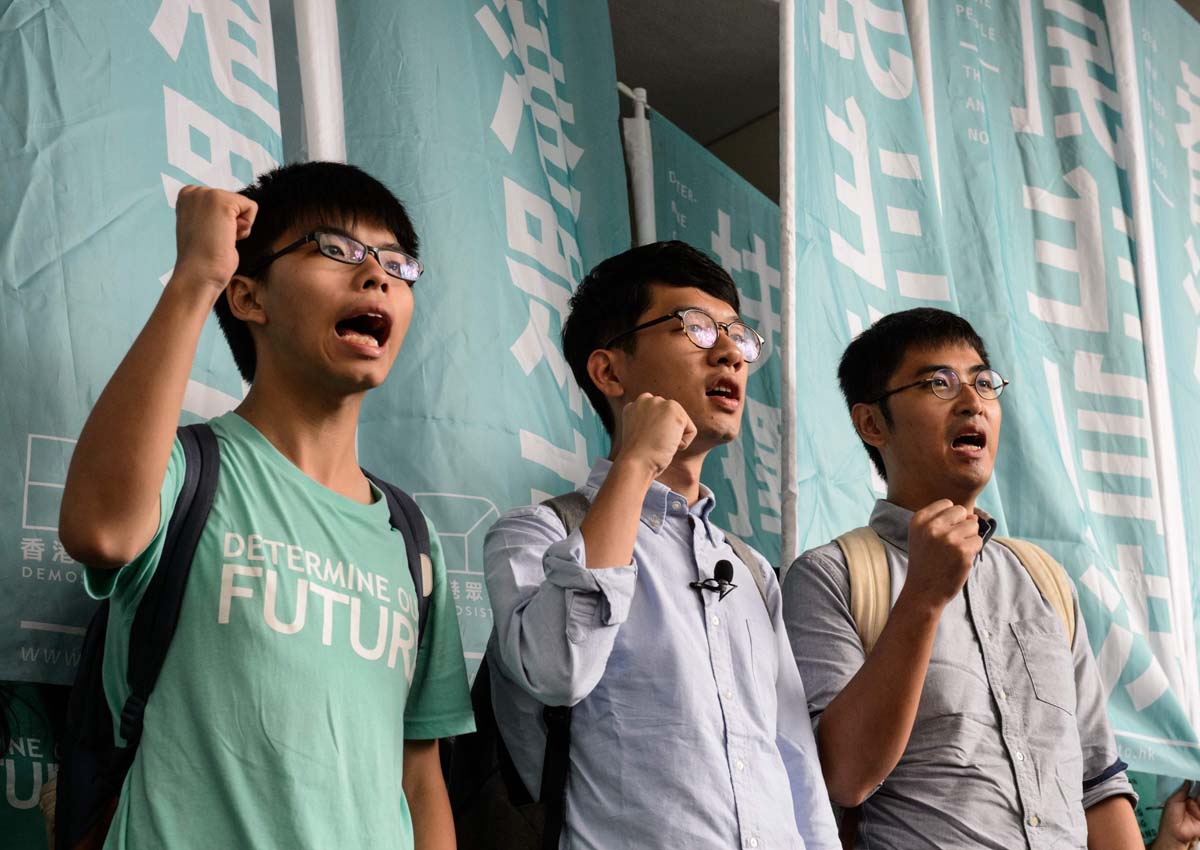Hong Kong – Three leaders of Hong Kong’s “Umbrella Revolution” escaped jail time Monday over protests that sparked massive rallies in 2014, with the court saying it would not base sentencing on the heated “political atmosphere” in the city.
Tensions are high as fears grow that China is closing its grip on semi-autonomous Hong Kong and observers had said a harsh sentence on the three popular young campaigners could lead to a backlash.
Their conviction last month in the highest profile court case to emerge from the pro-democracy movement was slammed by rights group Amnesty International, which described it as an intimidation tactic and a “chilling warning” to the city’s activists.
However, magistrate June Cheung said the three defendants – Joshua Wong, Nathan Law and Alex Chow – had no previous criminal records, were concerned about social issues and passionate about politics.
“They turned it into action,” she said.
“The court believes the case is different from an ordinary criminal case. I accept they were genuinely expressing their views.” Cheung added it would be “unfair to the defendants if a deterrent sentence is imposed based on the political atmosphere”.
Wong, 19, and Law, 23, were given community service over the protest, which saw students climb over a fence into forecourt of the government complex in the heart of the city, known as Civic Square.
The third activist, Alex Chow, 25, was given a suspended three-week sentence.
All three were facing possible two-year jail sentences when they appeared at district court on Monday morning.
Their arrests for the Civic Square protest in September 2014 sparked wider rallies that erupted two days later when police fired tear gas on the growing crowds.
That galvanised more than two months of mass demonstrations by tens of thousands of residents, calling for fully free leadership elections for the city – but despite the huge turnout, Beijing refused to grant any concessions.
The umbrellas used by protesters to protect themselves from tear gas and pepper spray gave the movement its name.
Wong and Chow had been charged with taking part in an unlawful assembly for the Civic Square demonstration, while Law was charged with inciting others to take part.
Wong has always said the various protest-related charges against him and others are political persecution.
Since the failure of the mass rallies to win reform, a growing number of young activists have begun calling for Hong Kong to break entirely from Beijing.
Wong and Law – who is a candidate for the city’s upcoming legislative council elections – recently founded a new political party, Demosisto, campaigning for self-determination for the city.
They have been in and out of court hearings for the past year after being charged with offences linked to various protest actions.
Both were acquitted in June over a separate anti-China rally in the summer of 2014.
In another high-profile case, activist Ken Tsang of the Civic Party was sentenced to five weeks in prison in May after he was found guilty of assaulting and resisting officers during the rallies. He is currently on bail pending an appeal.
Hong Kong was returned to China by Britain in 1997 with its freedoms guaranteed for 50 years, but there are growing concerns that Beijing is no longer adhering to the agreement.






































